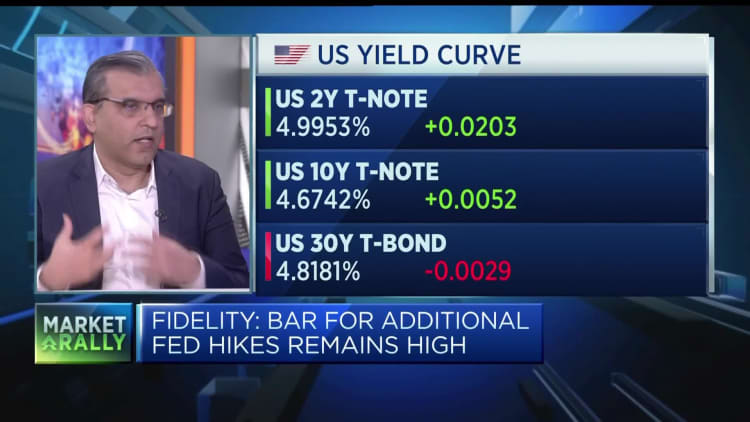European stock markets closed cautiously higher on Friday, rounding off a weekly rally powered by a series of solid earnings and a perceived dovish tilt from central banks.
The Stoxx 600 ended 0.2% higher, led by retail stocks, which were up 1.7%. Oil and gas saw the biggest drop, down by 2.2%.
European markets
The index withheld the downward drag from shipping giant Maersk, which plummeted 17% after saying profits would come in at the low end of guidance and announcing 10,000 job cuts.
Embattled Siemens Energy closed more than 9% higher, following reports that it is considering the sale of its stake in India's Siemens Ltd as a way to strengthen its balance sheet.
U.S. stocks had their best day since June and U.S. and European government bond yields retreated after the Federal Reserve on Wednesday held rates and markets raised bets that the central bank has hit peak rates and cuts are on the horizon.
These moves continued Friday after U.S. jobs figures were weaker than expected.
"Traders are taking the U.S. central bank's second pause in a row as a clear indication that the Fed won't hike any more, and bond prices are implying that the first rate cut will come mid-2024," said George Lagarias, chief economist at Mazars Wealth Management.
"However, I think we should be careful. The Fed hasn't explicitly committed to a particular course of action, and certainly not to a rate cut in eight months. Inflation is far from beaten... While it is no longer the central scenario, it is not, and should not be, wholly unthinkable that the Fed would raise rates again, allowing short yields to rebound."
The Bank of England meanwhile held rates for a second consecutive meeting.
BOE Governor Andrew Bailey told CNBC on Thursday that interest rates would have to be held "in restrictive territory for some time."
Like Christine Lagarde, president of the European Central Bank — which last week also held rates steady — he said it was too early to talk about rate cuts and that risks to inflation remain.
Third-quarter earnings have also been driving stock movements this week, with companies including Shell, Novo Nordisk, Lufthansa and BT boosted by beating expectations.
In Asia-Pacific, markets closed higher after China's service sector expanded at a slightly faster pace.


